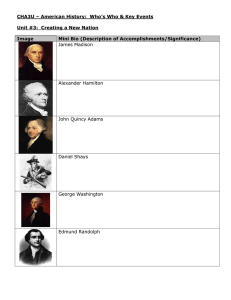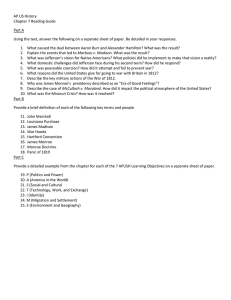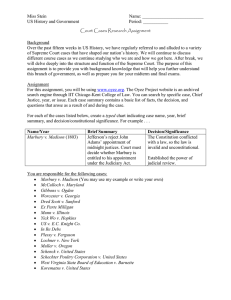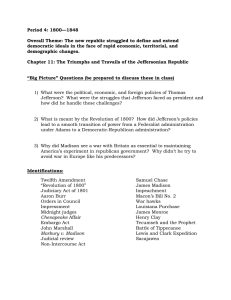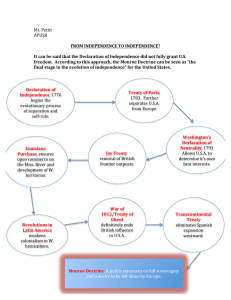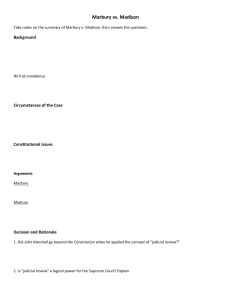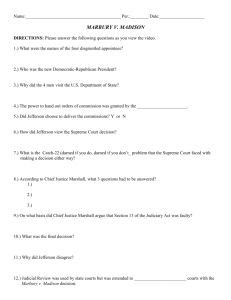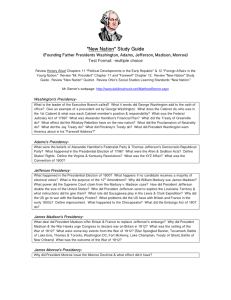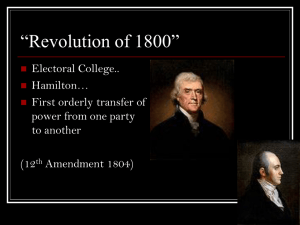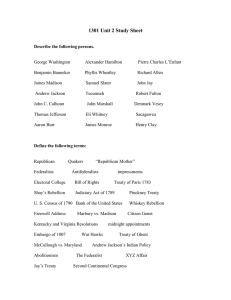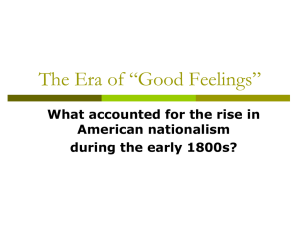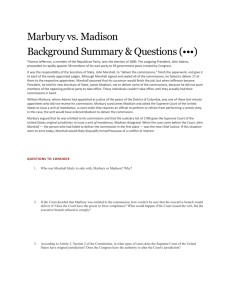AP US HISTORY UNIT 2 GUIDE
advertisement
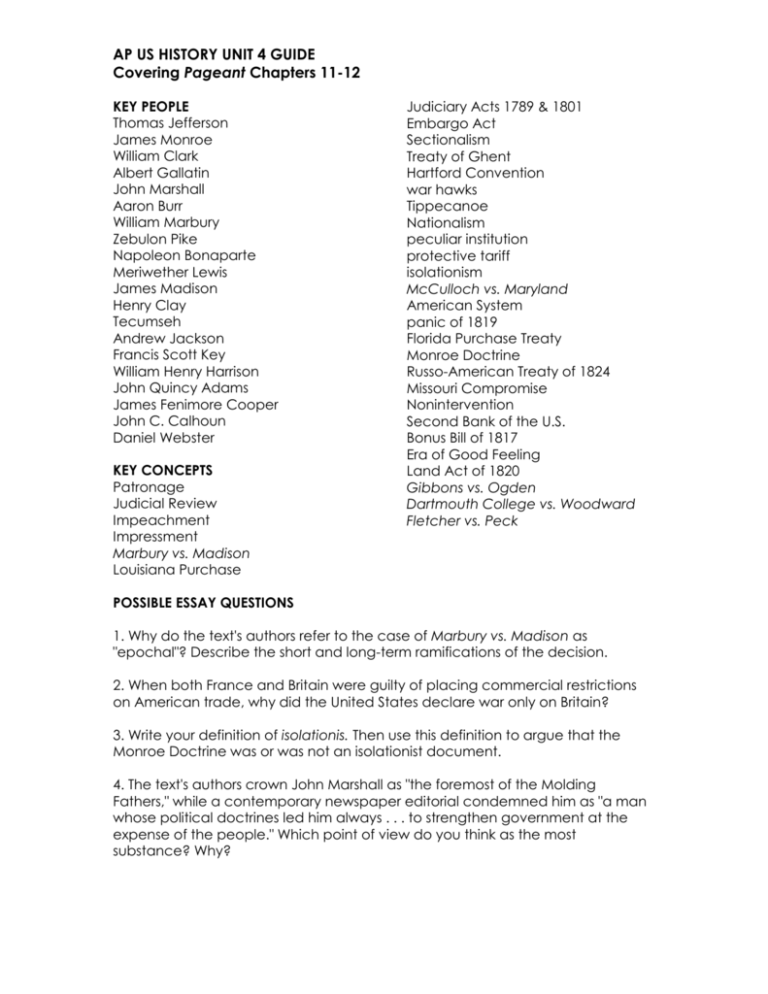
AP US HISTORY UNIT 4 GUIDE Covering Pageant Chapters 11-12 KEY PEOPLE Thomas Jefferson James Monroe William Clark Albert Gallatin John Marshall Aaron Burr William Marbury Zebulon Pike Napoleon Bonaparte Meriwether Lewis James Madison Henry Clay Tecumseh Andrew Jackson Francis Scott Key William Henry Harrison John Quincy Adams James Fenimore Cooper John C. Calhoun Daniel Webster KEY CONCEPTS Patronage Judicial Review Impeachment Impressment Marbury vs. Madison Louisiana Purchase Judiciary Acts 1789 & 1801 Embargo Act Sectionalism Treaty of Ghent Hartford Convention war hawks Tippecanoe Nationalism peculiar institution protective tariff isolationism McCulloch vs. Maryland American System panic of 1819 Florida Purchase Treaty Monroe Doctrine Russo-American Treaty of 1824 Missouri Compromise Nonintervention Second Bank of the U.S. Bonus Bill of 1817 Era of Good Feeling Land Act of 1820 Gibbons vs. Ogden Dartmouth College vs. Woodward Fletcher vs. Peck POSSIBLE ESSAY QUESTIONS 1. Why do the text's authors refer to the case of Marbury vs. Madison as "epochal"? Describe the short and long-term ramifications of the decision. 2. When both France and Britain were guilty of placing commercial restrictions on American trade, why did the United States declare war only on Britain? 3. Write your definition of isolationis. Then use this definition to argue that the Monroe Doctrine was or was not an isolationist document. 4. The text's authors crown John Marshall as "the foremost of the Molding Fathers," while a contemporary newspaper editorial condemned him as "a man whose political doctrines led him always . . . to strengthen government at the expense of the people." Which point of view do you think as the most substance? Why?
